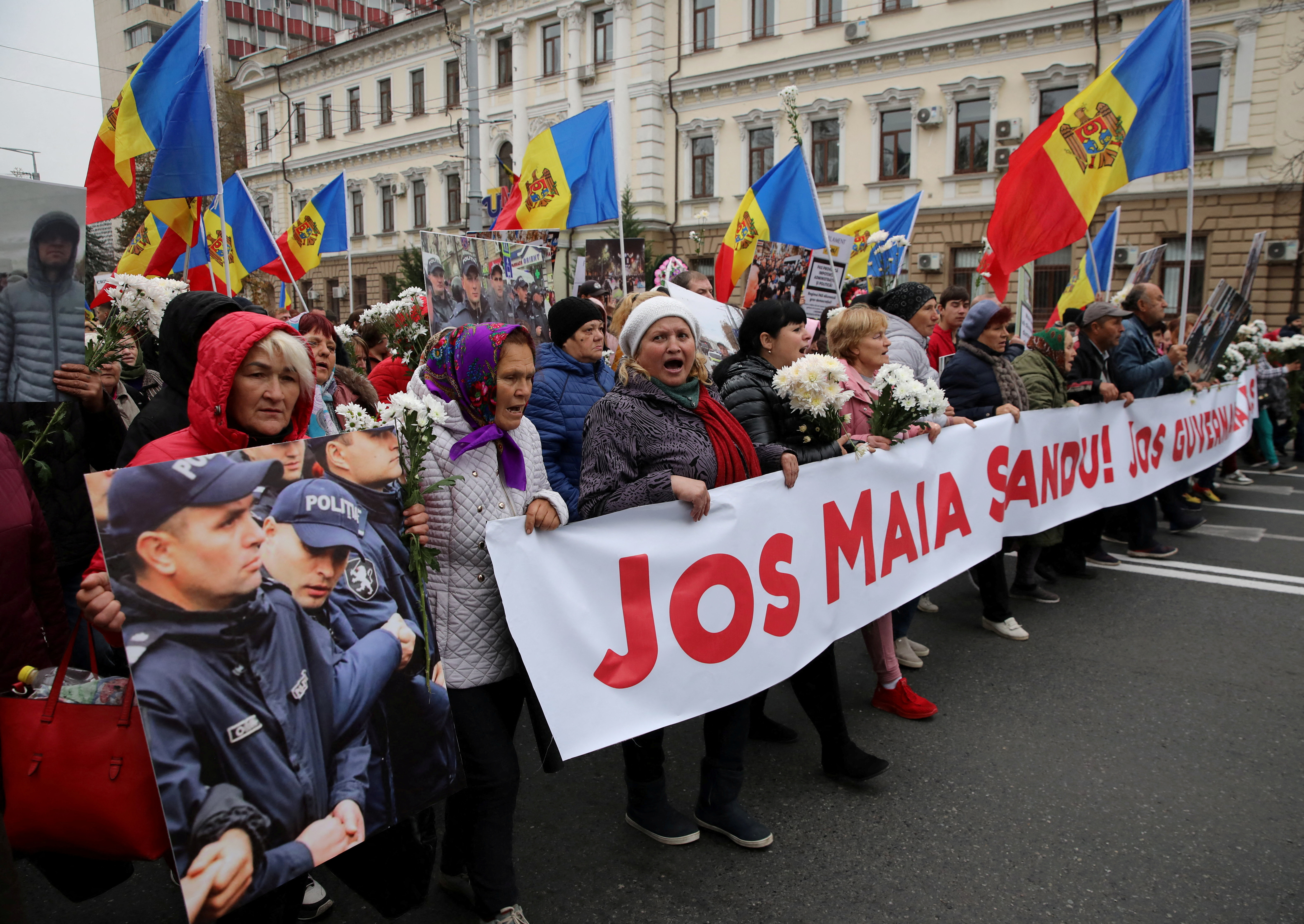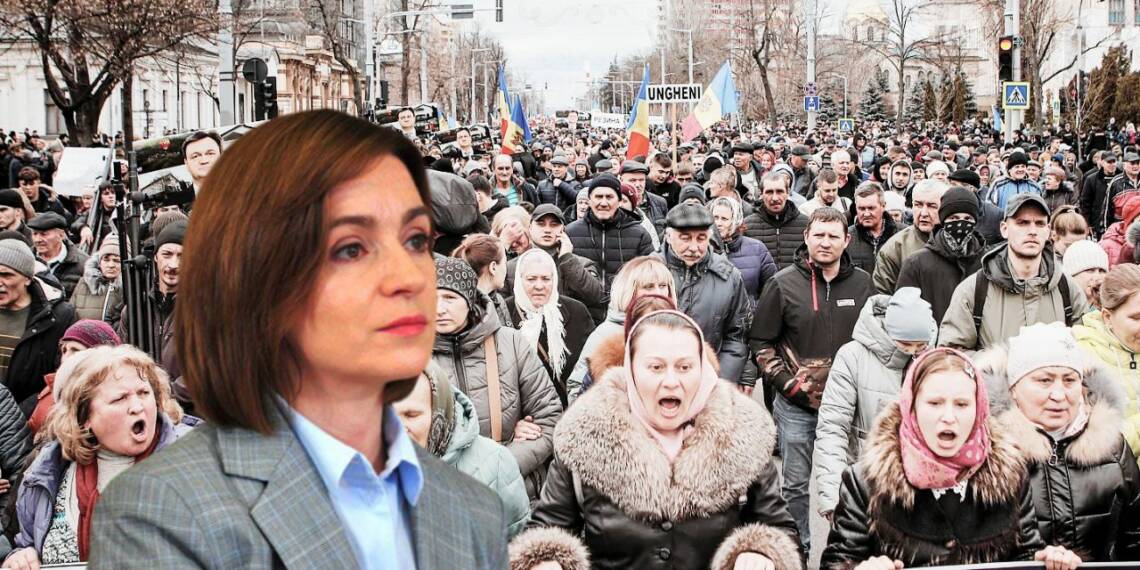Moldova on the Brink of Dictatorship? A Sharp Turn Towards Russia. Brussels’ Silence Speaks Volumes. Dive In for the Answers.
It is widely acknowledged that Western Powers strongly advocate for freedom of expression. However, it is surprising to note that the European Commission in Brussels appears to tolerate dictatorship within their allied nation.
Moldova has recently taken a significant step to curb pro-Russian sentiments by blocking access to major Russian news media websites, including Interfax and TASS news agencies, accusing them of engaging in an information war against the country.
Situated between Ukraine and NATO-member Romania, Moldova, with a Romanian-speaking majority, has accused Moscow of attempting to overthrow its pro-Western government since Russia’s invasion of Ukraine in 2022. Upcoming local elections in the country prompted this move.
Moldova’s Intelligence and Security Service published a decree listing 31 websites to be immediately blocked for their involvement in the “war of information against the Republic Of Moldova,” in addition to 22 sites blocked earlier.
The new list specifically targeted 14 Russian news sources, such as Komsomolskaya Pravda, Lenta.ru, TASS, and Interfax. Furthermore, Moldova suspended the licenses of six domestic TV channels during the crackdown.
A Necessity: Moldova’s New Excuse
Moldova’s Prime Minister, Dorin Recean, defended the decision, stating that Russia, through organized criminal groups, sought to influence the local elections on November 5 and undermine the democratic process. He emphasized the necessity of these measures, claiming that the banned TV channels were affiliated with criminal groups aiming to destabilize the country and pursue interests outside Moldova.
Russia’s response to these actions was not immediate, although the Russian Foreign Ministry had previously characterized the website blocking as a hostile step, denying Moldovans access to news sources.
Since June 2022, Moldova has restricted TV stations from airing news and analysis programs from Russia, permitting only Russian-language entertainment shows and movies. The reasons are pretty understandable for Moldovan authorities

Situated between Romania and Ukraine, Moldova has historically been a battleground for influence between Russia and the West. In recent years, Russia’s sway in Moldova has intensified due to its military intervention in Ukraine, economic dominance, and support for pro-Russian political factions.
The war in Ukraine led to a significant influx of refugees into Moldova, causing tensions among the local population. As per an estimate, approximately 750K Ukrainians are currently residing in Moldova. And guess what the population of Moldova is? A mere 3 Million.
And so, pro-Russian political forces, notably the Socialist Party of Moldova (PSRM), capitalized on anti-immigrant sentiment. The PSRM is alleged by President Maia Sandu to be closely linked to the Kremlin.
Surprisingly it was also the largest party in the Moldovan Parliament. Due to its pro-Russian stance, Moldova’s authorities banned the PSRM, which had actively worked to undermine the pro-Western government and foster closer ties with Russia.
The move was largely disapproved by Moldovans amidst the deteriorating situation including economic challenges, corruption allegations, and a polarized society, sparking worries about democratic erosion.
In May 2023, the Constitutional Court of Moldova made a significant decision, banning the Sor Party, marking the first dissolution of a political party since the country gained independence in 1991. The ban was attributed to funding irregularities, voter bribery, and participation in rallies, all under the pretext of eliminating “pro-Russian” political parties.
The Sor Party, previously the country’s second most popular political faction, represented a substantial portion of dissatisfied voters. Despite opposition concerns, President Maia Sandu dismissed her adversaries as Russian agents and members of criminal organizations.
Even with the ban, Sor Party representatives and activists remain determined, vowing to persist in their political pursuits.
They have pledged to continue their work and, if necessary, establish new parties to advocate for their causes.
This makes it pretty clear that Moldova is not letting any voice of dissent rise. With banned news channels and locked opposition leaders, it mirrors a worrying trend toward dictatorship.
And Strikingly, the EU, which champions democratic values, has remained notably silent on this crackdown, raising concerns about their stance on freedom of expression.
Moldova’s increasing authoritarian measures point to a troubling shift, indicating a disregard for democratic principles within the nation’s borders.
Read More: EU to deploy mission to Moldova: The war theatre moves from Ukraine to Moldova
Brussels is OK: Why Ursula Remains Unbothered about Chisinau
Yet, the EU’s silence on Moldova raises intriguing questions. While Brussels readily labels and condemns authoritative actions in countries like Hungary, Italy, or Russia, Moldova seems to get a free pass. And why not? Moldova is a bastion that Brusells has eyed for years.
The EU has provided Moldova with financial and policy support for many years. And the endeavors were paying off. According to a Pew Research Center poll from 2021, 63% of Moldovans supported joining the EU.
In comparison to other Eastern European nations like Georgia (39%), and Ukraine (52%) this level of support was significantly higher. The EU thought that both Moldova and the EU would gain from Moldova’s membership in the EU. Subsequently, the NATO alliance also attempted to appease Chisinau to address the threat posed by Transnistria.

Moldova’s eagerness to join the EU once enjoyed strong public support, but recent shifts in policy direction have challenged this sentiment. Chisinau is seeing rapid political changes in the country and it was glaringly clear in Gagauzia’s regional elections where Yevgeniya Gutsul, representing the Shor Party, won elections.
Furthermore, she has expressed her desire for “further friendship” with Moscow. This election result contradicts the EU’s vision for Moldova.
Perhaps that is why the EU is avoiding a vocal stance against Moldova’s authoritative regime, leaving observers puzzled about the EU’s selective approach to handling Moldova’s evolving political landscape.
Moldova finds itself gripped in a tightening web of suppression. President Maia Sandu, a staunch advocate of EU ideals, continues to clamp down on dissenters, stifling their voices in the open. It’s indeed a perplexing scenario.
Read More: Maia Sandu goes full Hitler as Moldova descends into chaos
Is this just a coincidence, or does her indulgence have anything to do with her partnership with Ursula Von Der Leyen? Though obvious, this hypocrisy doesn’t stop. One can’t help but wonder how long this farce can go on. Pressure keeps building, and the more opposition is put down, the more explosive mixture builds up, endangering Moldova’s very foundation.
The quick restoration of democracy will be a better course of action rather than the heavy hand of authority. Before it’s too late, Moldova should come to this realization.
Watch More:








